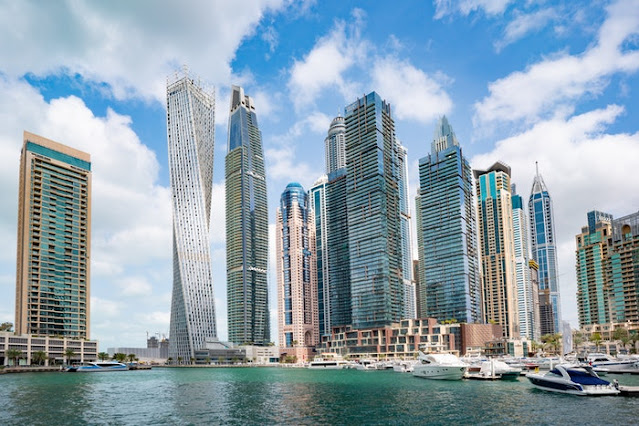Dubai's magnetic allure as a global business hub has attracted the attention of entrepreneurs and investors from around the world. But can foreigners really seize the opportunities and establish businesses in this thriving metropolis? In this comprehensive blog post, we'll unravel the intricacies of foreign investment and business setup in Dubai, shedding light on the processes, regulations, and key considerations for those looking to make their mark in the city of dreams.
Understanding Foreign Investment in Dubai:
Dubai's strategic location, vibrant economy, and pro-business policies have made it a hotspot for foreign investment. The city offers a range of opportunities across diverse sectors, catering to businesses of various sizes and industries. Whether you're an individual entrepreneur, a startup, or a multinational corporation, Dubai's investment landscape offers pathways to growth and success.
Investment Vehicles:
Foreigners seeking to invest in Dubai can explore various investment vehicles, each tailored to specific goals and objectives:
- Free Trade Zones: Dubai's numerous free trade zones provide foreign investors with incentives like 100% foreign ownership, tax exemptions, and simplified customs procedures. These zones cater to specific industries, such as technology, finance, media, and more, making them attractive options for business setup.
- Mainland Companies: Foreigners can also establish businesses in Dubai's mainland, subject to certain ownership regulations. Depending on the business activity, foreigners may need to partner with a local sponsor or enter into a corporate sponsorship agreement.
- Offshore Companies: Offshore companies are suitable for investors looking to engage in international trade and investment. These entities benefit from zero taxation, full ownership, and asset protection.
The Business Setup Process:
Starting a business in Dubai involves several steps, regardless of the chosen investment vehicle:
- Choose the Business Activity: Determine the nature of your business activity and select a relevant trade license.
- Select a Business Name: Choose a unique and meaningful business name that adheres to Dubai's naming guidelines.
- Apply for a License: Depending on your chosen location (free zone or mainland), apply for the appropriate license from relevant authorities.
- Secure Premises: Secure a physical office space or business address, as required by the license type.
- Submit Application: Submit the required documents, including application forms, passport copies, and business plans.
- Obtain Approvals: Await approvals from relevant authorities, which may vary based on the nature of your business.
- Get License and Visa: Once approvals are obtained, receive your trade license and apply for the necessary visas for business owners and employees.
Key Considerations for Foreign Investors:
- Legal Structure: Choosing the right legal structure is crucial. Free zones offer flexible ownership structures, while mainland businesses may require a local sponsor.
- Business Plan: A comprehensive business plan showcases your venture's viability and potential for growth, which is crucial for obtaining approvals.
- Cultural Sensitivity: Respect for local customs and traditions is paramount in business interactions. Understanding local business etiquette fosters positive relationships.
- Compliance: Adhering to local regulations and compliance requirements ensures smooth operations and avoids legal issues.
FAQs:
Q: Can foreigners own 100% of their business in Dubai?
A: Yes, in free zones, foreigners can enjoy 100% ownership. Mainland businesses may require a local partner, depending on the activity.
Q: Are there restrictions on business activities for foreigners?
A: While many activities are open to foreign investors, certain sectors like legal services and healthcare require local partnerships.
Q: How long does the business setup process take in Dubai?
A: The timeline varies but generally ranges from a few weeks to a few months, depending on the chosen location and business type.
Q: Can I repatriate profits earned in Dubai?
A: Yes, in most cases, foreign investors can repatriate profits without restrictions.
Q: Do I need a physical office space to start a business in Dubai?
A: Yes, most businesses require a physical office address. Free zones often provide options for flexible office spaces.
Q: Can I sponsor my employees' visas in Dubai?
A: Yes, business owners can sponsor their employees' visas, allowing them to live and work in Dubai.
Conclusion:
Dubai's allure as an investment destination for foreigners is backed by its welcoming atmosphere, modern infrastructure, and investor-friendly policies. Whether you're dreaming of launching a startup, expanding your business, or venturing into new markets, Dubai offers a wealth of opportunities. By understanding the intricacies of foreign investment and business setup, you can navigate the journey with confidence and contribute to Dubai's ever-growing economic tapestry.

